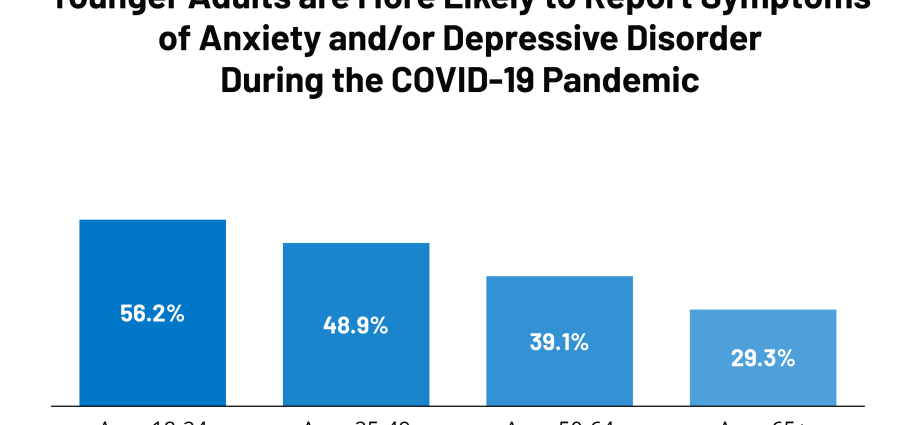Contents
Li gorî mîsyona xwe, Desteya Edîtoran a MedTvoiLokony her hewl dide ku naveroka bijîjkî pêbawer peyda bike ku ji hêla zanyariya zanistî ya herî dawî ve tê piştgirî kirin. Ala zêde "Naveroka kontrolkirî" destnîşan dike ku gotar rasterast ji hêla bijîjkek ve hatî vekolandin an jî hatî nivîsandin. Vê verastkirina du-gavekî: rojnamevanek bijîjkî û bijîjk rê dide me ku em li gorî zanîna bijîjkî ya heyî naveroka herî kalîteyê peyda bikin.
Peydabûna me di vî warî de, di nav yên din de, ji hêla Cemiyeta Rojnamevanên ji bo Tenduristiyê ve, ku Desteya Weşanê ya MedTvoiLokony bi navê rûmetê yê Perwerdekarê Mezin xelat kir, hate pesend kirin.
Scientists are still discovering the long-term effects of COVID-19. More and more information concerns the work of the brain and nervous system. According to psychiatrists, people who have contracted COVID-19 are more likely to develop mental disorders. These are disturbing reports.
- More and more studies show that COVID-19 affects the work of the brain and may increase the risk of mental disorders in people who have contracted the infection
- 1 in 5 people after contracting COVID-19 have developed disorders such as anxiety, depression or insomnia
- More updated information on the TvoiLokony home page
Mental disorders in patients after COVID-19
The SARS-CoV-2 coronavirus not only affects the respiratory tract, but also affects other organs in our body. More and more studies show that it can affect the work of our brain. Scientists studied people who contracted COVID-19 and found that some of them had mental health problems. The most frequently mentioned were anxiety, depression and insomnia. The researchers also found that these patients were also more likely to develop dementia.
Binêre jî: COVID-19 Accelerates Brain Aging?
“People are concerned that people who have had COVID-19 will be at greater risk of mental health problems, and our findings … show that it is likely,” said Paul Harrison, professor of psychiatry at the University of Oxford.
According to the psychiatrist, health services must be ready to provide care to COVID-19 patients who develop mental health problems, especially as the results of the study may be underestimated.
Ma hûn bi coronavirus vegirtî ne an kesek nêzîkî we COVID-19 heye? An jî dibe ku hûn di xizmeta tenduristiyê de dixebitin? Ma hûn dixwazin çîroka xwe parve bikin an her neheqiyek ku we dîtiye an jî bandor kiriye rapor bikin? Ji me re binivîsin: [Email protected]. Em nenasiyê garantî dikin!
Anxiety, depression and insomnia after developing COVID-19
Scientists analyzed the health cards of 69 million people in the United States, including more than 62. with confirmed COVID-19. Within three months of testing positive for COVID-19, 1 in 5 survivors are first diagnosed with disorders such as anxiety, depression or insomnia. The study was published in the journal “The Lancet Psychiatry”.
Interestingly, researchers also found that people diagnosed with mental disorders are 65 percent. more likely to be infected with SARS-CoV-2 coronavirus than people without the disorder.
Mental health experts who were not involved in the study said these findings are yet another confirmation that COVID-19 affects the work of the brain and may contribute to an increased risk of a number of mental disorders.
“This is likely due to a combination of the psychological stressors associated with this particular pandemic and the physical effects of the disease,” said Michael Bloomfield, consultant psychiatrist at University College London.
Simon Wessely, professor of psychiatry at King’s College London, said the finding that people with mental health disorders are more susceptible to contracting SARS-CoV-2 coronavirus supports what previous research has shown.
«COVID-19 affects the central nervous system, so it can exacerbate further disorders. Research confirms that this is not all, and that the risk is increased by previous poor health, »added Wessely.
Desteya edîtoran pêşniyar dike:
- Nîşanek nû ya zû ya COVID-19 hate nas kirin. Dibe ku xemgîn bibe
- Zanyaran pişên kesên ku ji COVID-19 mirine lêkolîn kirin. Wek ku derket?
- Guhertoyên genê yên piçûk dikarin li ser giraniya COVID-19 bandor bikin
Naveroka malpera medTvoiLokony armanc dike ku têkiliya di navbera Bikarhênerê Malperê û doktorê wan de çêtir bike, ne şûna wê. Malper tenê ji bo armancên agahdarî û perwerdehiyê ye. Berî ku hûn zanyariyên pispor, bi taybetî şîretên bijîjkî, ku li ser Malpera me hene bişopînin, divê hûn bi bijîşkek re şêwir bikin. Rêvebir ti encamên ku ji ber karanîna agahdariya ku li ser Malperê têne hilberandin nagire. Ma ji we re şêwirdariyek bijîjkî an e-reçeteyek pêdivî ye? Herin halodoctor.pl, ku hûn ê li wir alîkariya serhêl bistînin - zû, bi ewlehî û bêyî ku ji mala xwe derkevin.










